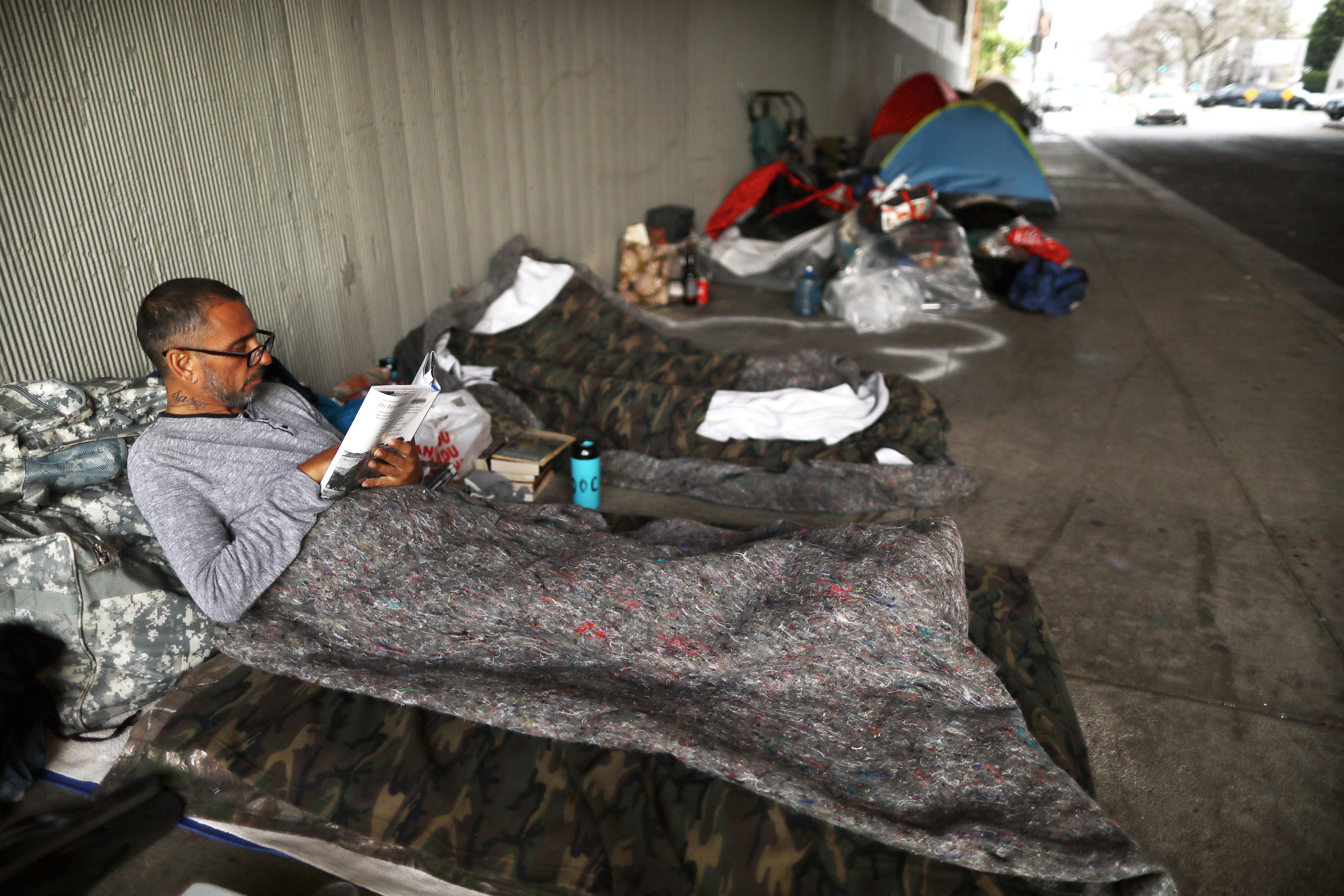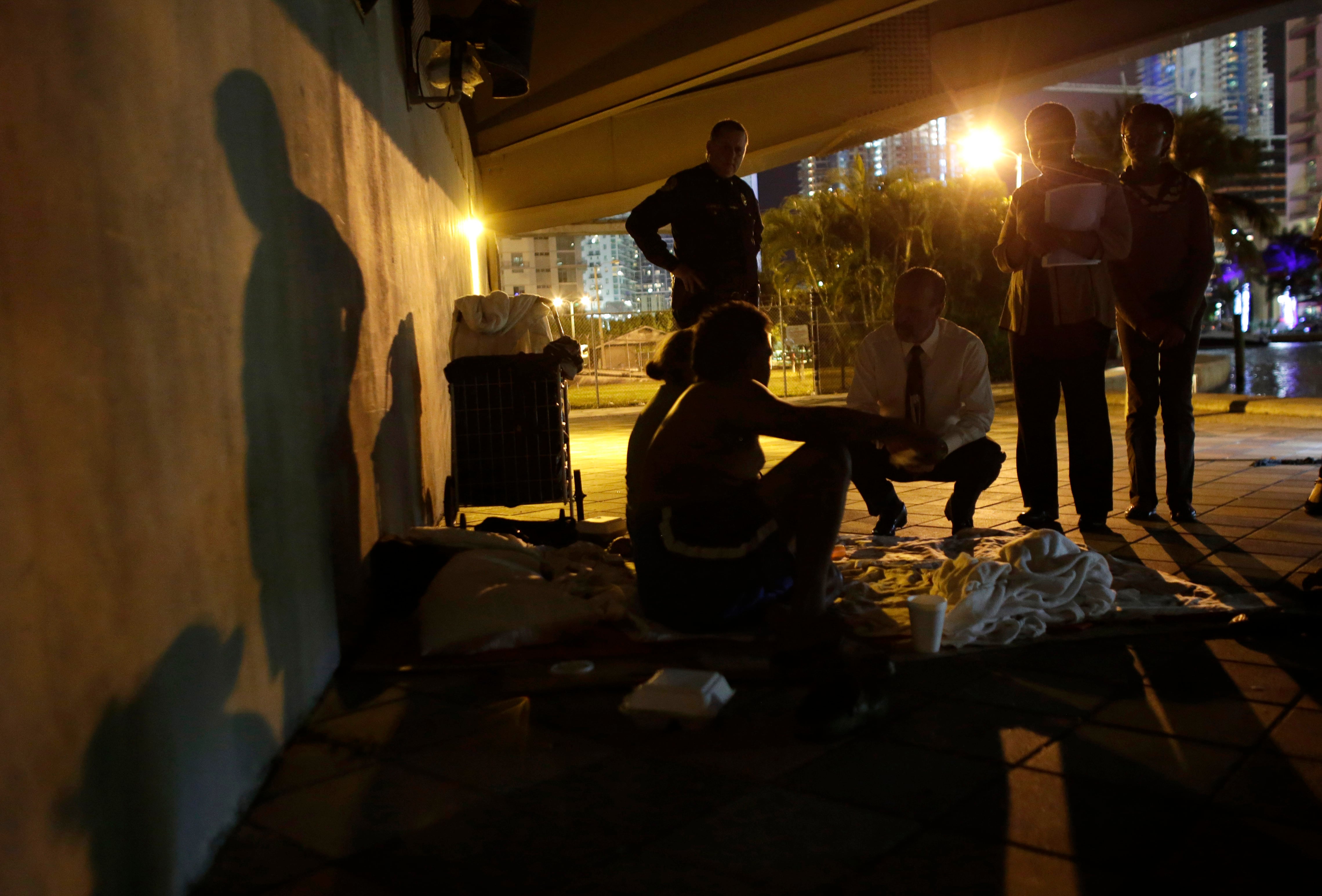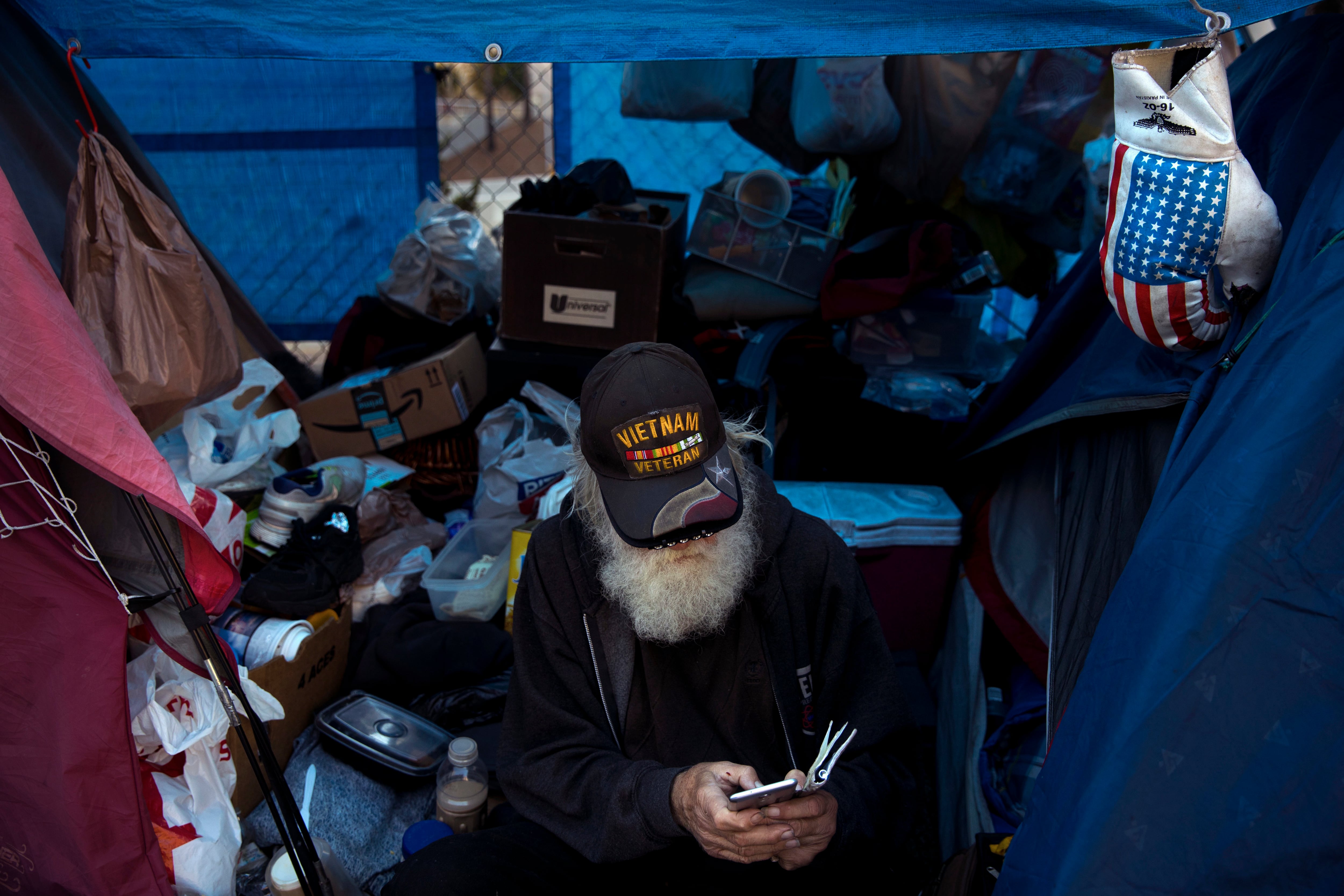White House officials are pairing new legal support and job training programs for veterans with a $3.1 billion investment in general community support grants in an effort to further reduce the number of veterans facing homelessness.
Administration officials unveiled the plans on Thursday, calling them “the single largest investment in communities’ homelessness response systems in history.” The move comes as Veterans Affairs officials said they are on pace with their goal of permanently housing 38,000 at-risk veterans this year.
“Homelessness is a challenge we face as a nation, but importantly it is also a solvable one,” said White House Domestic Policy Advisor Neera Tanden in a press conference on the new initiatives.
According to the latest federal estimates, about 33,000 veterans across the country lack reliable, permanent housing on any given day. That figure is down about 11% since 2020 and down about 55% since 2010.
RELATED

Despite the progress, however, veterans advocates have warned that the expiration of a host of pandemic-era support programs and grants threatens support systems for vulnerable veterans. Officials from the National Coalition for Homeless Veterans said some non-profits have seen their federal grants slashed by tens of thousands of dollars, potentially hurting their outreach efforts.
The $3.1 billion boost to the Department of Housing and Urban Development’s Continuum of Care program could help offset some of those losses. The program awards funds to community groups and local governments to help provide support to families facing the threat of homelessness.
Federal officials said the new money will not be earmarked solely for veterans support efforts, but that participants will be directed to “coordinate with local Department of Veterans Affairs Medical Centers to ensure these funds are effectively supporting veterans and their families.”
Two other new programs will be aimed directly at helping veterans, however. A new $11.5 million Legal Services for Veterans grant program will give individuals help with fighting eviction orders, gaining access to financial support programs, and provisioning similar legal assistance.
“Legal support can be the difference between becoming homeless in the first instance or having a safe, stable house,” said VA Secretary Denis McDonough.”With this, we move ever closer to that goal.”
RELATED

The Department of Labor Veterans’ Employment and Training Service also plans to launch a new $58 million grant program to connect homeless veterans with job opportunities. That money will include training programs for in-demand industries and outreach to community employers to connect them with would-be veteran workers.
Department of Veterans Affairs officials will also work with HUD leaders on a series of “boot camps” on veterans homelessness throughout the fall, officials said. The sessions will bring together staffers to talk about best practices in reaching and helping veterans, and finding ways to better coordinate cooperation of numerous federal agencies in focusing on helping homeless veterans.
Tanden called the success in reducing the number of homeless veterans over the last decade a model for other government support efforts, but also said that more still needs to be done.
Congressional appropriators in the House and Senate have already preliminary backed plans for a 16% boost in homelessness assistance funding in the budget for fiscal 2024, which begins on Oct. 1. However, because of ongoing partisan fights on a host of budget issues, it’s unclear when that money may be available to VA planners.
Leo covers Congress, Veterans Affairs and the White House for Military Times. He has covered Washington, D.C. since 2004, focusing on military personnel and veterans policies. His work has earned numerous honors, including a 2009 Polk award, a 2010 National Headliner Award, the IAVA Leadership in Journalism award and the VFW News Media award.




